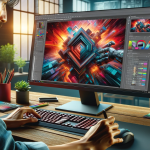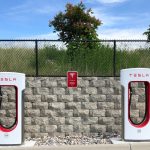Rivian, headquartered in Irvine, continues to make strides in the electric vehicle market despite facing significant production hurdles. Known for its luxury EV offerings, Rivian has garnered substantial attention on the West Coast while contending with intensified competition nationwide. The company remains committed to enhancing its product range and addressing supply chain issues to sustain its market presence.
Rivian’s performance this quarter highlights both its strengths and the obstacles it faces in the rapidly evolving EV landscape. By maintaining a strong foothold in California, Rivian showcases its ability to appeal to a discerning customer base while preparing to meet broader market demands with upcoming models.
How is Rivian performing in the competitive EV market?
Rivian’s flagship R1S SUV has achieved significant success in California, capturing over 23 percent of registrations in its class during the third quarter.
“That’s not just the most popular electric SUV—it’s the most popular SUV,”
CEO R.J. Scaringe stated during the earnings call, emphasizing the R1S’s dominance in the luxury SUV segment.
What challenges is Rivian currently facing?
The company encountered supplier disruptions in the third quarter, primarily due to a parts shortage affecting the Enduro motor used in its R1 models.
“This has been a tough quarter for us because of some of those supply chain or supplier ramp challenges,”
Scaringe explained, adding that the shortages are expected to be a temporary setback.
What are Rivian’s future plans to overcome these issues?
Looking ahead, Rivian is focused on launching the R2 model, an affordable SUV targeted at a broader market. Scheduled for a 2026 release, the R2 aims to replicate the R1S’s success at a mid-$40,000 price point. Additionally, Rivian’s partnership with LG Energy Solution will supply advanced batteries, improving efficiency and reducing costs in their new models.
Rivian’s strategic initiatives, including the introduction of the R2 and collaboration with LG Energy Solution, are designed to enhance production capabilities and expand market reach. These efforts are crucial for Rivian to navigate the competitive landscape and meet the increasing demand for electric vehicles.
Rivian’s journey reflects the broader trends in the EV industry, where innovation and strategic partnerships play vital roles in overcoming production and supply chain challenges. By focusing on both high-end and more affordable models, Rivian positions itself to cater to a diverse customer base and sustain its growth in the electric vehicle market.
Rivian’s ability to adapt to production challenges while expanding its product lineup demonstrates resilience and strategic foresight. The company’s efforts to streamline battery production and introduce new models will be key factors in its continued success and influence in the EV sector.










